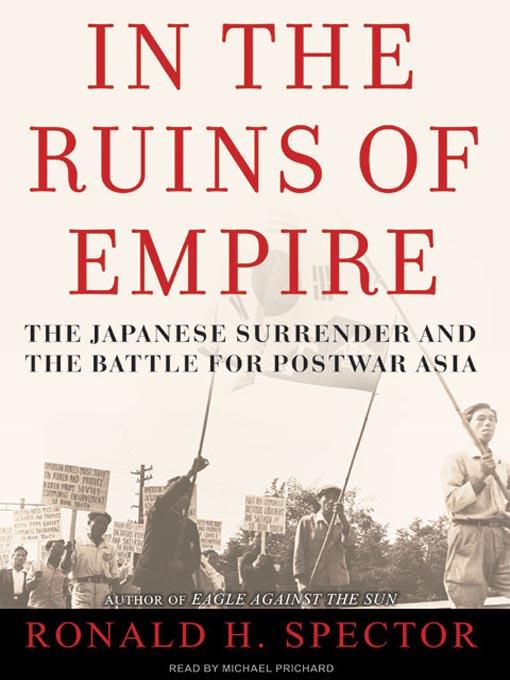
In the Ruins of Empire
The Japanese Surrender and the Battle for Postwar Asia
فرمت کتاب
audiobook
تاریخ انتشار
2007
نویسنده
Michael Prichardناشر
Tantor Media, Inc.شابک
9781400174171
کتاب های مرتبط
- اطلاعات
- نقد و بررسی
- دیدگاه کاربران
نقد و بررسی

The fighting wasn't over when the Japanese surrendered at the end of WWII. Spector traces the links between the fall of the Japanese Empire and the rise of communism in China, Korea, and Vietnam, and change throughout Asia. Michael Prichard reads like an old-time radio announcer, hitting home Spector's points in a clear voice. Even so, the narrative gets bogged down in detail at times, making for a challenging listening experience. Spector wraps up his account by applying the lessons of post-WWII Asia to the current Iraq situation. Overall, the production is interesting and presented well; still, listeners should be prepared for some serious historical study. J.A.S. (c) AudioFile 2008, Portland, Maine

Starred review from April 9, 2007
Americans considered World War II over in August 1945, but in this enthralling sequel to Eagle Against the Sun
, historian Spector recounts the brutal postwar conflicts inside former Japanese conquests. Although hailed in American media as China's savior, Chiang Kai-shek enlisted and received the help of the undefeated Japanese army in fending off Mao Zedong's Communist forces. The modest assistance of two U.S. Marine divisions barely slowed Chiang's ultimate defeat. WWII's end in Malaya produced a vicious racial conflict between Malaysians and the Chinese minority. Vietnam considered itself independent when the French returned to resume control, a bloody process that, after eight years, failed. Before surrendering, the Japanese granted independence to the Dutch East Indies (Indonesia), but four years of warfare and anarchy passed before the Dutch withdrew. American occupation forces arrived in South Korea, entirely ignorant of its culture and language, and remained till 1949, leaving a turbulent country ruled by the only Koreans the U.S. could understand: missionary-educated, English-speaking and very conservative; U.S. troops returned the following year. Spector relates dismal accounts of civil war and mass slaughter, much of it provoked by the blundering victorious powers—a painful lesson backed with impressive research and delivered with Spector's usual wit and insight.

























دیدگاه کاربران